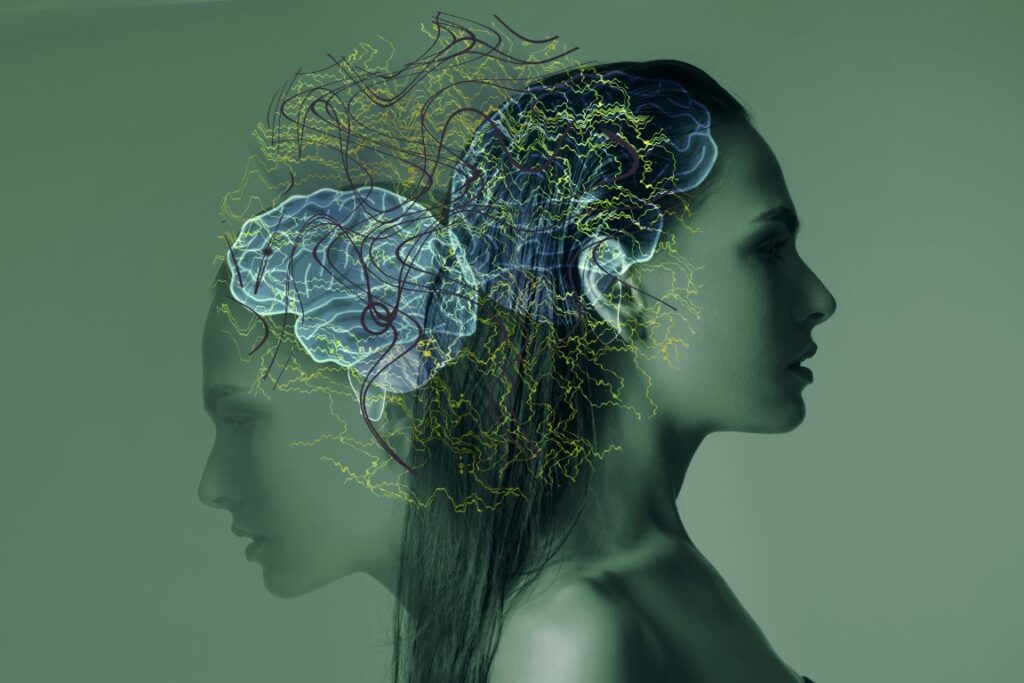When you practice mindfulness, you open the door to a multitude of mental health benefits. Reduced stress and anxiety are just the beginning. Improved focus and concentration can transform the way you approach your daily tasks.
But that's not all. Enhanced emotional regulation and better sleep quality could be within reach.
Curious to uncover more ways mindfulness can impact your mental well-being?
Reduced Stress and Anxiety
By practicing mindfulness, you can significantly reduce stress and anxiety levels in your daily life. Mindfulness techniques offer a powerful tool for anxiety management. When you're feeling overwhelmed or anxious, taking a few minutes to focus on your breath and bring your awareness to the present moment can work wonders. This simple act can help calm the mind and bring a sense of peace.
Engaging in mindfulness practices such as meditation, deep breathing exercises, or yoga can help train your mind to stay present and not dwell on anxious thoughts. These techniques can also improve your ability to manage stress by teaching you to respond to situations with a clear and calm mind, rather than reacting impulsively.
Incorporating mindfulness into your daily routine doesn't have to be complicated. You can start by setting aside just a few minutes each day to practice mindfulness exercises. Over time, you may notice a significant reduction in your stress and anxiety levels, leading to a more peaceful and balanced state of mind.
Improved Focus and Concentration
Enhancing your focus and concentration through mindfulness practices can lead to improved productivity and mental clarity. Mindfulness can positively impact your cognitive performance and attention span, helping you excel in various aspects of your life.
Here are some key benefits to consider:
- Enhanced Cognitive Performance: Mindfulness techniques can sharpen your cognitive abilities, making it easier to think critically, solve problems, and make decisions.
- Increased Attention Span: By practicing mindfulness, you can train your mind to stay focused for longer periods, improving your ability to concentrate on tasks at hand.
- Improved Productivity: With better focus and concentration, you can work more efficiently and effectively, completing tasks with greater ease and accuracy.
- Clearer Mental Clarity: Mindfulness can help declutter your mind from distractions, allowing you to approach challenges with a clear and focused mindset.
Enhanced Emotional Regulation
To further benefit from mindfulness, consider how it can also play a pivotal role in enhancing your emotional regulation skills. Mindfulness practice offers a powerful tool for stress management, allowing you to navigate challenging emotions with more ease. By engaging in mindfulness techniques, you cultivate emotional balance, which is essential for your overall well-being.
When you practice mindfulness, you develop a heightened awareness of your emotions without judgment. This awareness enables you to observe your feelings as they arise, giving you the opportunity to choose how to respond thoughtfully rather than react impulsively. Through mindfulness, you can learn to acknowledge difficult emotions without being overwhelmed by them, fostering a sense of inner calm and resilience.
Better Sleep Quality
Improving your sleep quality can be significantly influenced by incorporating mindfulness practices into your daily routine. Mindfulness and insomnia are closely linked, and by embracing mindfulness, you can experience a positive impact on your ability to fall and stay asleep.
Here are some ways mindfulness can help enhance your sleep:
- Reduces Stress: Mindfulness techniques can lower stress levels, making it easier for you to relax before bedtime.
- Promotes Relaxation: Engaging in mindfulness before sleep can help calm your mind and body, preparing you for a restful night.
- Enhances Awareness: By practicing mindfulness, you can become more attuned to your body's signals, aiding in recognizing sleep patterns.
- Improves Sleep Hygiene: Mindfulness encourages healthy sleep habits, such as maintaining a consistent sleep schedule and creating a soothing bedtime routine.
Incorporating mindfulness and sleep therapy techniques can contribute to a more restorative and rejuvenating night's sleep, ultimately enhancing your overall well-being.
Increased Self-Awareness
When you practice mindfulness, you'll notice an improvement in your ability to reflect on your thoughts and feelings, leading to enhanced introspection skills.
This increased self-awareness can help you better understand your emotions and reactions, ultimately improving your emotional regulation.
Enhanced Introspection Skills
By developing mindfulness practices, you can cultivate enhanced introspection skills, leading to increased self-awareness and a deeper understanding of your thoughts and emotions. Through this process, you embark on a self-discovery journey, uncovering layers of your being that were previously unexplored. Here are some benefits you can expect:
- Greater Clarity: Mindfulness techniques help you cut through mental clutter, allowing you to see things more clearly.
- Improved Decision Making: Enhanced introspection skills enable you to make decisions aligned with your true values and desires.
- Emotional Healing: By delving into your thoughts and emotions, you can address past wounds and promote healing.
- Heightened Empathy: Increased self-awareness often leads to a better understanding of others and a deeper sense of empathy.
Improved Emotional Regulation
Developing mindfulness practices can lead to a significant enhancement in your ability to regulate emotions, contributing to increased self-awareness and improved overall well-being. By incorporating mindfulness techniques into your daily routine, you can cultivate emotional balance and gain a deeper understanding of your feelings and reactions.
Mindfulness encourages you to observe your emotions without judgment, allowing you to respond to challenging situations with greater clarity and composure. This increased self-awareness enables you to recognize patterns in your emotional responses, empowering you to make conscious choices about how to react.
As you continue to practice mindfulness, you may find yourself better equipped to navigate difficult emotions, leading to a more balanced and harmonious emotional state.
Boosted Resilience
When you practice mindfulness, you equip yourself with powerful tools to boost your resilience in the face of life's challenges. By reducing stress levels through mindfulness techniques, you're better able to navigate difficulties with a clearer mind and calmer demeanor.
Additionally, mindfulness helps you regulate your emotions, enabling you to respond to adversity with greater composure and adaptability.
Stress Reduction
Engage in mindfulness practices to enhance your ability to bounce back from stress and build resilience. Mindfulness techniques and relaxation techniques can be powerful tools in reducing stress levels. Here are some benefits of incorporating mindfulness into your daily routine:
- Mindfulness helps you stay present and focused, reducing the impact of stressful thoughts and situations.
- Practicing mindfulness can improve your self-awareness, allowing you to recognize stress triggers and respond more effectively.
- Mindfulness promotes a sense of calm and relaxation, helping you manage stress more efficiently.
- By cultivating mindfulness, you can develop a greater sense of resilience, empowering you to navigate challenging circumstances with more ease.
Emotional Regulation
Incorporating mindfulness practices into your daily routine not only aids in stress reduction but also enhances your emotional regulation, boosting resilience in navigating life's challenges with greater ease. Mindfulness techniques empower you to observe your thoughts and feelings without judgment, allowing you to cultivate emotional balance.
By sharpening your awareness of your emotions through mindfulness, you can develop a healthier relationship with them, leading to improved emotional regulation. This heightened emotional intelligence enables you to respond to situations with more clarity and composure, reducing impulsive reactions.
As you strengthen your ability to stay present and regulate your emotions through mindfulness practices, you build a solid foundation for resilience, equipping yourself to face life's ups and downs with increased stability and adaptability.
Enhanced Overall Well-being
To experience enhanced overall well-being, practicing mindfulness can significantly improve your mental health. Embracing mindful living can bring a sense of inner peace, leading to a more balanced and fulfilling life.
Here are some ways mindfulness enhances your well-being:
- Reduced Stress: Mindfulness helps you manage stress by focusing on the present moment and letting go of worries about the past or future.
- Improved Emotional Regulation: By practicing mindfulness, you can better understand and regulate your emotions, leading to more stable moods and decreased emotional reactivity.
- Enhanced Relationships: Mindfulness cultivates empathy and compassion, improving your relationships with others and fostering deeper connections.
- Increased Resilience: Mindfulness equips you with the tools to cope with life's challenges more effectively, enhancing your resilience and ability to bounce back from adversity.
Frequently Asked Questions
Can Mindfulness Practices Have Negative Effects on Mental Health?
When practicing mindfulness, it's essential to be aware of potential risks and limitations. It's wise to take precautions and consider your mental health needs. Mindfulness can be beneficial, but remember to approach it mindfully.
Is Mindfulness Suitable for Everyone, or Are There Certain Individuals Who Should Avoid It?
Mindfulness is generally suitable for everyone, but it's vital to be aware of mindfulness misconceptions. While many benefit, those with severe mental health conditions should approach it cautiously. Understand the risks before diving in.
How Long Does It Typically Take to See Benefits From Practicing Mindfulness?
When you commit to practicing mindfulness regularly, you can start feeling the benefits in as little as a few weeks. The more consistent you are, the quicker you'll notice improvements in your mental well-being.
Are There Specific Mindfulness Techniques That Are More Effective for Certain Mental Health Conditions?
Explore mindfulness techniques tailored to your unique needs for optimal effectiveness in addressing specific mental health conditions. Customizing mindfulness practices to individual requirements enhances their impact on well-being and supports mental health recovery.
Can Mindfulness Be Used as a Standalone Treatment for Mental Health Issues, or Is It More Effective When Used in Combination With Other Therapies?
Mindfulness can be a powerful standalone treatment for mental health issues, but its effectiveness can be enhanced when used in combination with other therapies. It offers a holistic approach that complements various treatments.
Conclusion
In conclusion, practicing mindfulness can offer a wide range of mental health benefits, including reduced stress and anxiety, improved focus and concentration, enhanced emotional regulation, better sleep quality, increased self-awareness, boosted resilience, and enhanced overall well-being.
By incorporating mindfulness into your daily routine, you can experience a more peaceful and balanced state of mind, ultimately leading to a happier and healthier life.
So why not give it a try and see the positive impact it can have on your mental well-being?


